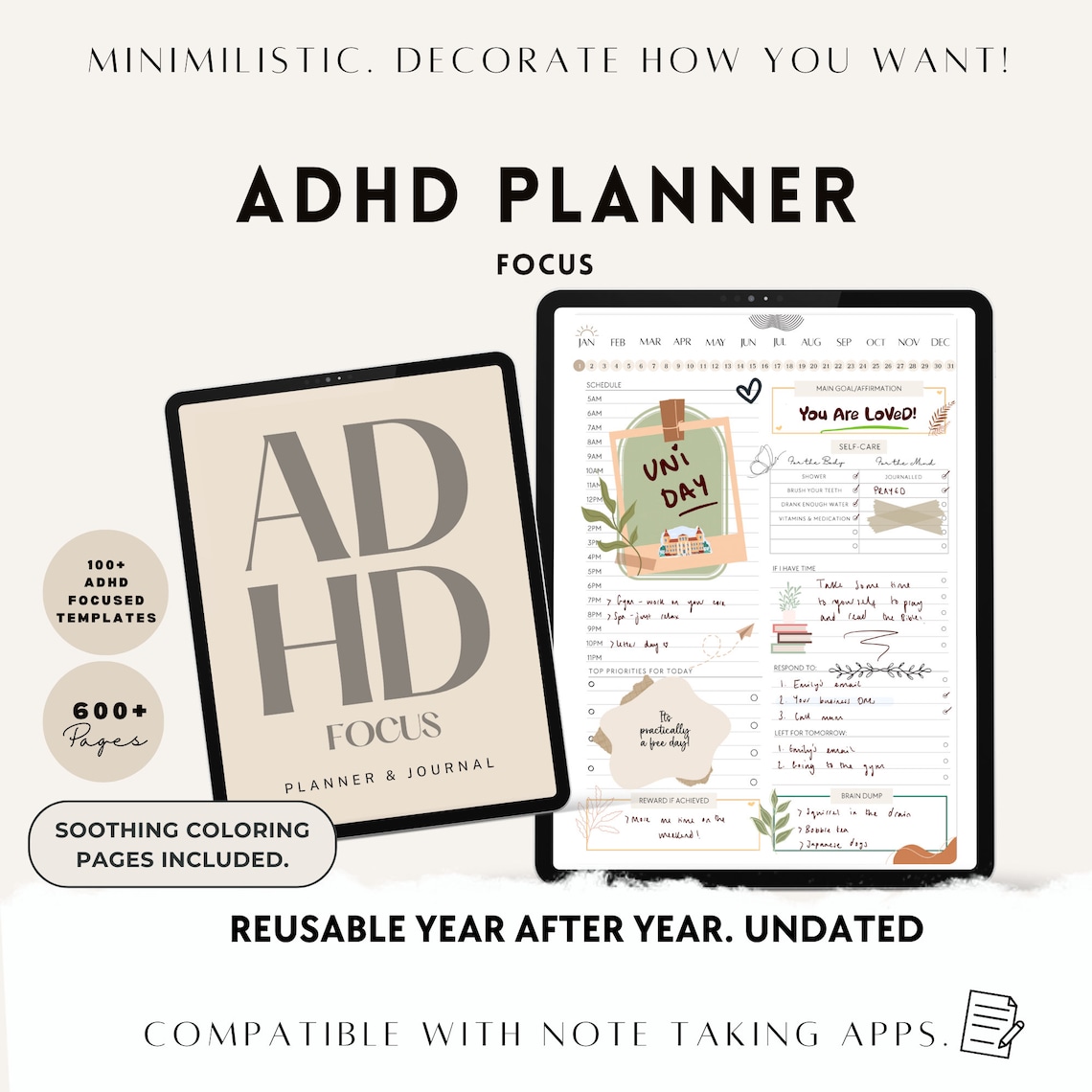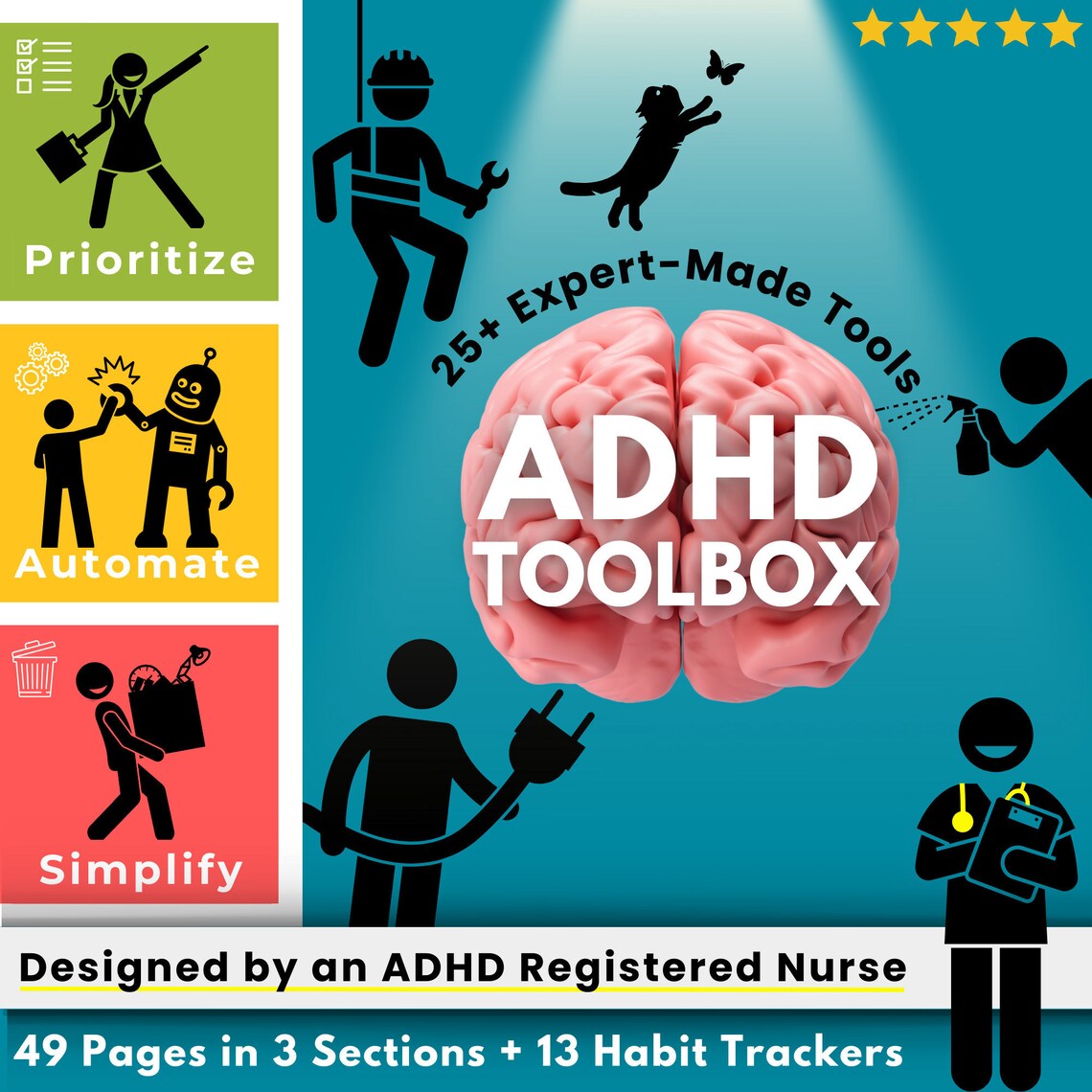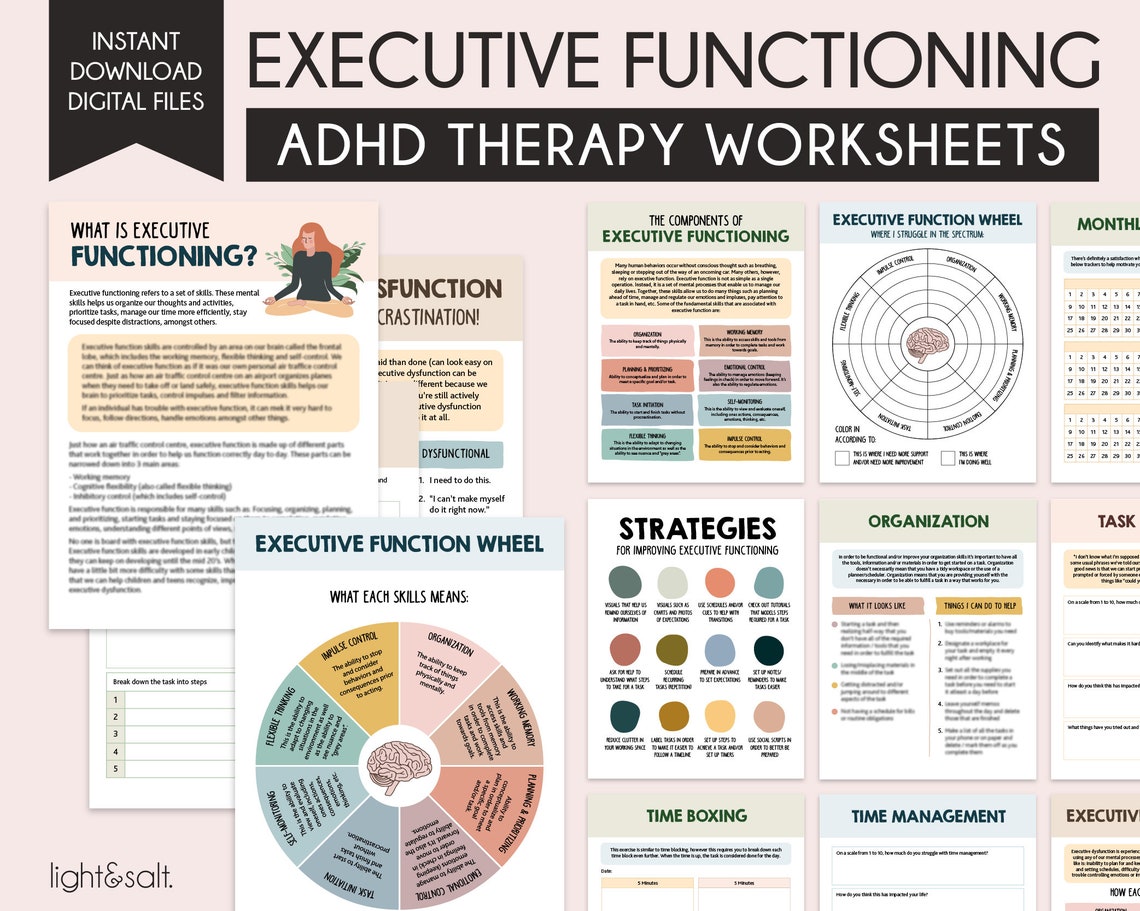- Expert Tips for Managing ADHD Adults
Procrastination is a common challenge for many people. I know that I have procrastinated
numerous times when trying to get things done when it comes to school work or things around the house.
However, I know that it is especially difficult for a child, teen, or adult with Attention Deficit Hyperactivity Disorder (ADHD). This condition often comes with issues related to focus, organization, and time management, making it harder to start and complete tasks.
However, with most effective strategies, I believe that anyone can overcome these hurdles.
In this article, we’ll explore 25 expert tips for managing ADHD in 2024, helping you stop procrastinating and improve your productivity.
Etsy – Check Here
Understanding ADHD and Procrastination
Before diving into the tips, it’s important to understand how ADHD affects procrastination. ADHD impacts the brain’s executive functions, which are crucial for planning, prioritizing, and executing tasks. This can lead to difficulties in starting tasks, staying focused, and finishing projects on time. Procrastination, in turn, can increase stress and reduce overall productivity.
25 Expert Tips for Managing ADHD and Beating Procrastination
1. Break Tasks into Smaller Simple Steps
Larger projects can be overwhelming. Break them down to smaller, manageable tasks. This makes the process less daunting and provides a clear roadmap to follow. For example, if you have a exam coming up or you’re hosting an event 6 months from now. Start at month one and just brain storm about what you plan to do, than month 2 start putting the resources together and so forth.
2. Use a Timer
I couldn’t tell you how many times a TIMER has actually saved me when in school and when working in my career. Timers are great for when working on big and small projects when it comes to reducing stress of whatever activity you’re doing. Set timers from 5 to 15 to 30 minute increments and watch how much work efficient you have become.
3. Set Clear Deadlines
By setting clear measurable realistic deadlines is something that you can save yourself from a lot of headache. Setting deadlines is something that I live by when working on something that I know is due anywhere from 2 weeks to 6 months.
4. Prioritize Tasks
Identify the most important tasks and tackle them first. Use tools like the Eisenhower Matrix to distinguish between urgent and important tasks.
5. Create a Routine
Having a daily routine that can provide structure and reduce decision fatigue can come in handy when trying to do multiple things at once. Try to schedule your most challenging tasks for when you’re most alert, and than your less stressful tasks towards the end of the day.
6. Use Visual Aids
Calendars, planners, and to-do lists can help keep you organized. Visual reminders make it easier to track your progress and stay on top of tasks.
7. Limit Distractions
Create a workspace free from distractions so that there isn’t anything around you from keeping you from doing your work. This might mean using noise-canceling headphones, blocking distracting websites such as Facebook, Twitter, or Tik-Tok, or setting boundaries with family members.
8. Utilize Technology
There are numerous apps designed to help manage ADHD. Tools like Trello, Todoist, and Forest can help with task management and focus. Download the app in your phone and get started on managing your time today.
9. Practice Mindfulness
Mindfulness techniques can improve focus and reduce impulsivity. Regular practice can help you stay present and engaged with your tasks. Write in a journal, practice some mindfulness affirmations, take a walk or listen to music to shift your mindset sometimes.
10. Exercise Regularly
Physical activity boosts brain function and can improve concentration. Incorporate regular exercise into your routine to enhance overall productivity.
11. Get Adequate Sleep
Sleep is very crucial for cognitive function. Aim for 8 to 10 hours per night to ensure your brain is well-rested and ready to tackle tasks. Plan your day out by what time you will exercise and then get into the bed.
12. Eat a Balanced Diet
Nutrition affects brain health. A balanced diet rich in fruits, vegetables, lean proteins, and whole grains can improve focus and energy levels.
13. Stay Hydrated
Have you ever felt like you were going to faint and had memory fog? Dehydration can impair cognitive function. Drink plenty of water throughout the day to stay alert and focused.
14. Seek Real Professional Help
Therapists and coaches who specialize in ADHD can provide personalized strategies and support. Cognitive-behavioral therapy (CBT) is particularly effective for managing procrastination. This type of therapy I know is effective because I have personally used it when interning during my internship to get my Masters in Clinical Mental Health.
15. Medication Management
I’m not a big fan of the medication but I do believe that some medications when administered right is a good choice for some people. If you’re on medication for ADHD, ensure you’re taking it as prescribed. Medication can significantly improve focus and reduce procrastination.
16. Accountability Partners
Having someone to check in with can keep you accountable. This could be a friend, family member, or a support group. Have a checklist of people whom you trust that can check in with you daily.
17. Reward Yourself
Always positive rewards and reinforcements are great to keep you going when hard times hit. Set up a reward system for completing tasks. This can provide motivation and make the process more enjoyable.
18. Use a Task Management System
Systems like Getting Things Done (GTD) can help you organize and prioritize tasks effectively.
19. Practice Self-Compassion
Don’t be too hard on yourself when you struggle. Recognize that procrastination is a common issue with ADHD and practice self-compassion. By reinforcing negative behavior it’s hard to break out of that cycle of wanting to do something with your life.
20. Break the Perfectionism Habit
Perfectionism can lead to procrastination. Accept that not every task needs to be done perfectly; focus on making progress instead. Believe me I know how with this mentality that it can either break you or make you when trying to focus on yourself.
21. Create a Positive Work Environment
Your environment can impact your productivity. Ensure your workspace is clean, organized, and inspiring. Put some positive quotes and affirmations around the room.
22. Stay Active in Learning
Stay informed about ADHD and procrastination. Reading books, attending workshops, podcast, and participating in online forums can provide new insights and strategies.
23. Develop Coping Strategies
Identify specific triggers for procrastination and develop coping strategies. This could include stress-relief techniques or alternative methods for managing time.
24. Regularly Review Your Goals
Keep your long-term goals in mind and regularly review them. This helps maintain motivation and ensures you’re working towards what truly matters. I love making long-term goal plans because it allows me to make some decisions about my life that I wouldn’t normally do.
25. Embrace Flexibility
Sometimes plans don’t go as expected. Be flexible and willing to adjust your strategies as needed. Adaptability is key to managing ADHD effectively.
Etsy – Check Here
Conclusion
Procrastination can be a significant hurdle for those with ADHD, but it’s not insurmountable. By implementing these expert tips, you can develop effective strategies to manage your time, stay focused, and achieve your goals.
Remember, progress takes time and effort, so be patient with yourself and celebrate your successes along the way. With the right tools and mindset, you can overcome procrastination and thrive every year. “Managing ADHD Adults”











